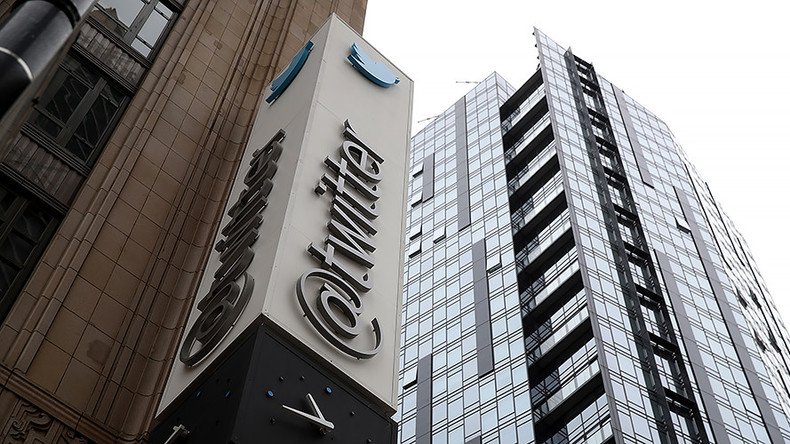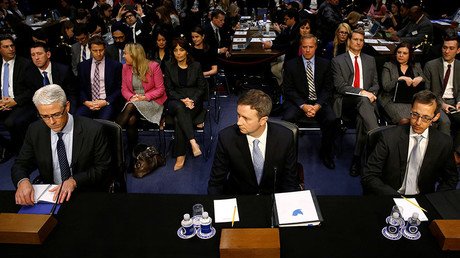Twitter no longer believes in 'speaking truth to power' – updated rules

Twitter no longer believes in “speaking truth to power,” according to its latest rules update in the midst of US lawmakers’ frantic hunt for “Russian meddling” in social media.
The microblogging site’s rules, under the section “Abusive Behavior,” currently state: “We believe in freedom of expression and open dialogue, but that means little as an underlying philosophy if voices are silenced because people are afraid to speak up.” On November 2, it read “We believe in freedom of expression and in speaking truth to power.”
Incidentally, on November 1, Twitter, along with Google and Facebook, was grilled by US lawmakers in an ongoing witch-hunt for “Russian influence” that may have led to interference in the 2016 presidential election.
In its testimony to the Senate Intelligence Committee earlier this week, Twitter revealed it has used a vast array of tenuous criteria to define accounts as “Russia-linked,” and also admitted it had censored the hashtags #PodestaEmails and #DNCLeaks tweets during the 2016 US presidential election campaign in an effort to limit public exposure to leaked documents describing the Democratic National Committee’s efforts to boost Clinton as the Democratic Party’s preferred candidate during the primaries.
Twitter Associate General Counsel Sean Edgett claimed many of those tweets were “automated” and hidden by anti-spam systems. He also admitted that less than 4 percent of them came from potential “Russian-linked” accounts.
Last week, Twitter also announced it was banning all ads from RT and Sputnik, citing the same allegations of meddling in the 2016 US election. That, despite the company previously trying to engage RT in a special US election advertising package, which RT declined.
READ MORE: Revealed: How Twitter pushed RT to spend big on 2016 US election
The changes to Twitter’s rules were apparently made as part of a November 3 attempt to “clarify” them.
We just published a clearer version of the Twitter Rules to clarify our policies and how we enforce them https://t.co/gPv9nt3y1M
— jack (@jack) November 3, 2017
In a statement, the company said that it wanted to make it clear that “context is crucial when evaluating abusive behavior and determining appropriate enforcement actions.”
A separate update will be issued on November 14 with more details on how the company reviews and enforces policies, according to Twitter.
RT has reached out to Twitter for comment on the change to the wording of its policy.













